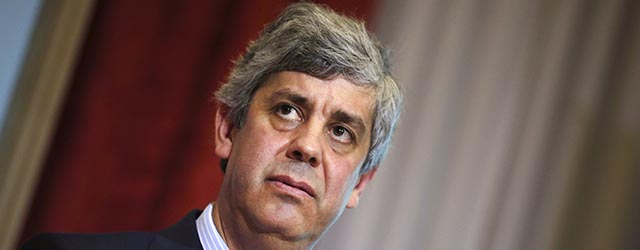He has been called a “rock star” in Portugal’s popular press.

More conservative critics have likened him to Yanis Varoufakis, the motorbike-riding, confrontational former Finance minister of Greece.
But despite his youthful looks, it is hard to describe Mário Centeno, 49, appointed last November as Finance minister in the new, Socialist-led government, as rock star material. He’s a rather orthodox, Harvard-trained economist who spent most of the past decade working for Banco de Portugal, the central bank.
Nor is he a Varoufakis-style “rebel without a cause.” His political strengths are as a consensus-builder. These came to the fore in crafting an economic plan that his Socialist Party and its more leftist coalition partners could agree upon.
Having won election on an anti-austerity ticket, Centeno has repeatedly stated that austerity in Portugal has run its course, and he has reversed further cuts to pensions and public-sector wages.
But, as Luís Aguiar-Conraria, of the University of Mihno’s research center in political economics, notes: “Centeno reflects the more conservative side of this government, providing assurance to moderates and outsiders that Portugal will adhere to European rules.”
Last month Centeno survived a standoff with the European Commission (EC), which rejected his first budget for running a fiscal deficit above 3% of GDP. After intense negotiations, he bridged the gap, raising €900 million ($1 billion) through higher taxes on gas, cigarettes, automobiles and property, while maintaining anti-austerity pledges on pensions and wages.
The revised budget was accepted, although with Portugal’s economy now growing more slowly than forecast, the EC might require further deficit trimming. The cost of financing those debts is rising fast, with the recent sell-off in Portuguese sovereign bonds pushing yields to levels not seen since October 2014.
Having been so much in the spotlight, Centeno is feeling the heat. He needs to balance adhering to EC rules with anti-austerity populism. If he fails, the more extreme leftist parties could bring the coalition down by year-end.



